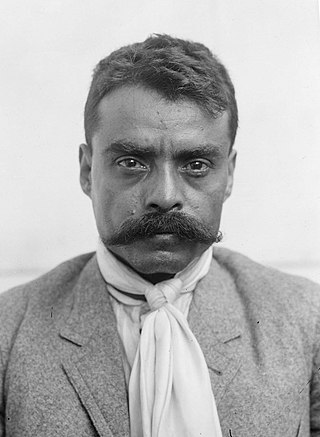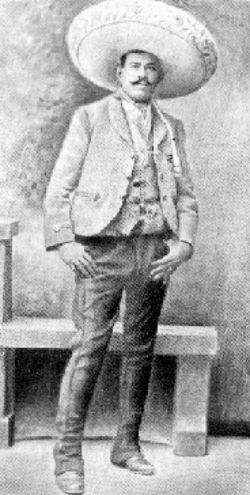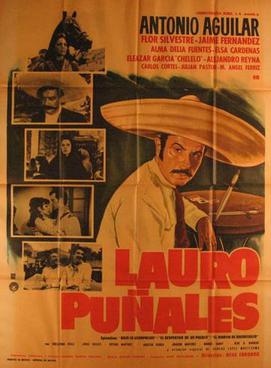Related Research Articles

Emiliano Zapata Salazar was a Mexican revolutionary. He was a leading figure in the Mexican Revolution of 1910–1920, the main leader of the people's revolution in the Mexican state of Morelos, and the inspiration of the agrarian movement called Zapatismo.
Zapata: el sueño del héroe, also titled simply Zapata, is a 2004 Mexican film.
Emiliano Zapata is a city in the west-central part of the Mexican state of Morelos. It stands at 18°52′N99°09′W. The city serves as the county seat for the surrounding municipality of the same name. The municipality is the sixth largest in the state of Morelos, with a 2020 census population of 107,053 inhabitants, and has it an area of 64.983 km2. The city of Emiliano Zapata had 64,084 inhabitants in 2020. The city was previously known as both San Francisco Zacualpan and San Vicente Zacualpan. It was renamed in honor of Mexican Revolutionary Emiliano Zapata.

Eufemio Zapata Salazar was a participant in the Mexican Revolution and the brother of Mexican revolutionary Emiliano Zapata. He was known as a womanizer, a macho man, and a very heavy drinker.

José Pascual Antonio Aguilar Márquez Barraza was a Mexican singer and actor. He recorded over 150 albums, which sold 25 million copies, and acted in more than 120 films. He was given the honorific nickname "El Charro de México" because he is credited with popularizing the Mexican equestrian sport la charrería to international audiences.
Digna... hasta el último aliento is a Mexican film released in 2003.

References and depictions of Mexican revolutionary Emiliano Zapata, places and things named for and commemorating him.

Felipe Cazals was a Mexican film director, screenwriter, and producer. His wife was Rosa Eugenia Báez de Cazals.
La Revolución de Emiliano Zapata is a Mexican rock band that broke sales records in Europe and Mexico with their hit song "Nasty Sex" at the height of the counterculture era of the early 1970s. Breaking ties with their original concept as the hippie era waned worldwide by the mid-1970s, they continued actively interpreting romantic ballads with considerable success. In 2009, they returned as a rock act.

Felipe Neri was a soldier and general in the Mexican Revolution.
Events in the year 1919 in Mexico.
The Golden Ariel is an award that “symbolizes the work of excellence that a member of the film industry has achieved throughout their career and that has contributed to the development and growth of Mexican cinematography”. The Golden Ariel is the highest award given to an individual or institution in the Mexican film industry by the Mexican Academy of Cinematographic Arts and Sciences. It has been awarded annually since 1946 as part of the Ariel Awards and is also given to films that win Best Picture. As of 2020 ceremony, the current recipients are composer Lucía Álvarez and actress María Rojo.

Amador Salazar Jiménez was a Mexican military leader who participated in the Mexican Revolution.

Otilio Montaño Sánchez was a Zapatista general during the Mexican Revolution.

Antonio Diaz Soto y Gama was a Mexican politician and revolutionary during the Mexican Revolution.

Lauro Puñales is a 1969 historical drama film directed by René Cardona, and starring Antonio Aguilar, Flor Silvestre, and Jaime Fernández.
Chimalapa Zoque or Oaxaca Zoque is a Zoquean language of the municipalities of Santa María Chimalapa and San Miguel Chimalapa in Oaxaca, Mexico.
Events in the year 1956 in Mexico.
El vuelo del águila is a Mexican telenovela produced by Ernesto Alonso and Carlos Sotomayor for Televisa in 1994–1995. Telenovela based on the Mexican soldier and President of Mexico Porfirio Díaz, from his name had come out the title "Época Porfiriana" or "Porfiriato" during the period of his rule, in the years 1876–1911.
References
- ↑ "Biographical Dictionary of Mexican Film Performers - Antonio Aguilar" . Retrieved 17 December 2011.